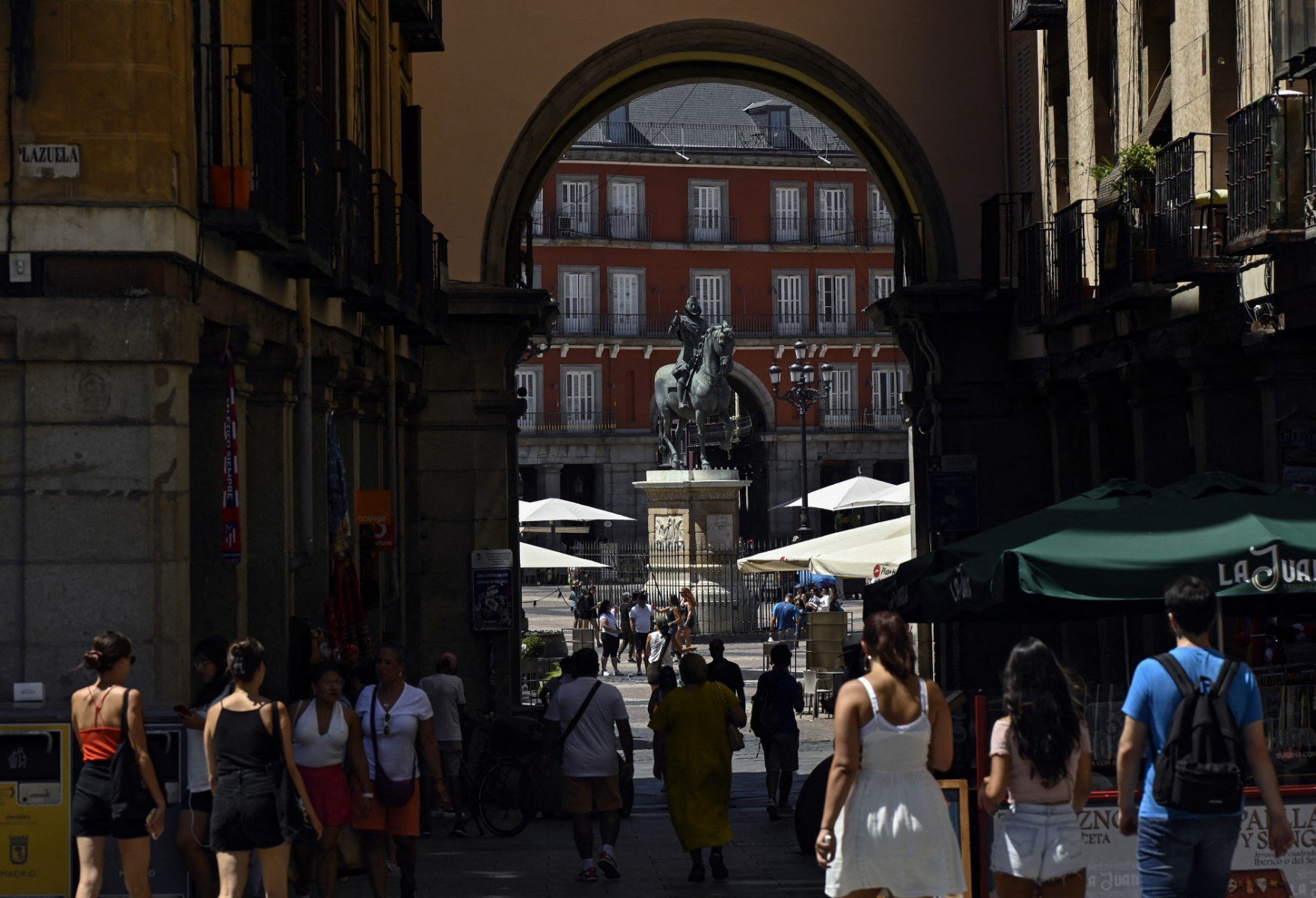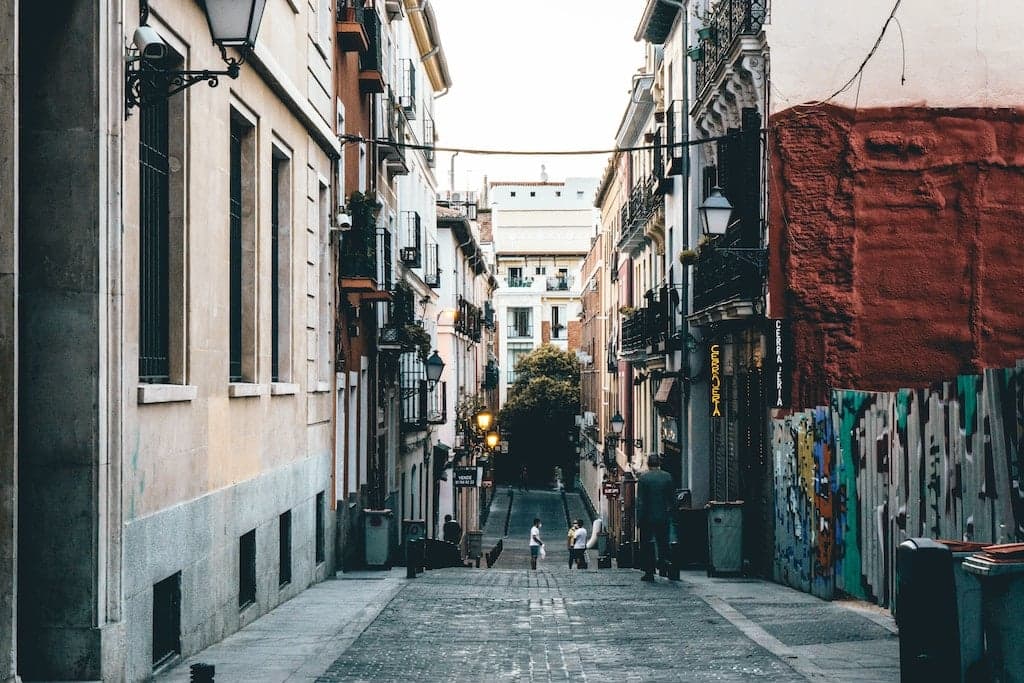There are tens of thousands of tourist apartments in Madrid available through platforms such as Airbnb and Booking, and yet recent findings show that barely five percent have a municipal tourist licence in order to operate legally.
Only 628 tourist apartments with this licence exist throughout the city, Madrid's Delegate of Urban Planning, Environment and Mobility Borja Carabante has said.
According to the Inside Airbnb platform, there were 24,828 tourist apartments in the city in 2023. Some estimates suggest that only four percent or one in 25 of them are legal, but the ratio could be even starker.
Knowing the true number of tourist apartments in Madrid may not be possible. Other data from 2023 suggests that they continue to proliferate, with between 4,500 and 5,000 more short-term lets advertised this year.
READ ALSO: Which cities in Spain have new restrictions on tourist rentals?
The fact that these holiday lets in Spain's capital don't meet the legal standards doesn’t prevent owners from advertising them on Airbnb or similar, even though the homestays giant states that owners should have a tourist licence if required.
Complaints about tourist apartments in Madrid have grown by almost 70 percent in the last year, going from 282 between January and September 2022 to 482 registered in the same period of 2023, according to the latest management report of Madrid City Hall's Urban Activities Agency.
What is the current law on tourist apartments in Madrid?
In March 2019, one month before the Madrid mayoral elections, former mayor Manuela Carmena approved a special Accommodation Plan to regulate tourist accommodation in the city.
The new rule established among other requirements that tourist apartments should have an independent entrance from the rest of the neighbours. This would affect 95 percent of holiday lets in the city according to her calculations. The rule was appealed by the sector, but the courts ended up agreeing with the City Council in 2021.
READ ALSO: Spain's Canaries consider limiting short-term holiday lets
What is being done about Madrid's illegal holiday lets problem?
Now, the current mayor José Luis Martínez-Almeida believes that these rules are not enough and plans to introduce new measures in 2024 to try and curb the tourist apartment problem, without giving any proper details yet.
"We all know that there are thousands of homes that are providing this service. Therefore, the current regulations are not sufficient and are not adjusting to the legality of the city, he said. "We intend to establish a plan that allows us to face the challenge of how to legalise apartments without a licence," Almeida added.
 Tourists cross Plaza Mayor square in central Madrid, a hotspot of holiday lets. (Photo by OSCAR DEL POZO / AFP)
Tourists cross Plaza Mayor square in central Madrid, a hotspot of holiday lets. (Photo by OSCAR DEL POZO / AFP)
Some urban experts and neighbourhood groups are against Almeida’s plans, arguing that the old law is sufficient. “The problem is not the current law but the lack of will to enforce it,” the neighbourhood associations of Madrid Centro told El Diario.
"If it has not worked, it is simply because his government team has not wanted it to work, evading their responsibility for surveillance and control, preferring to look the other way while the problem spreads,” they add.
Others also blame the lack of inspectors available to check on these apartments.
What are the penalties in place?
To offer a property for tourist use in the city, two legal requirements are necessary - a responsible declaration issued by the Community of Madrid and a licence from the City Council.
Failure to comply with these rules may result in a fine of up to €3,000 if it is minor, or €300,000 if it is very serious, according to regional law 11/1999 on Tourism Regulation.
How can authorities shut down illegal tourist apartments?
In order for Madrid City Council to close a tourist apartment, they must first prove that it doesn’t have a licence. Once they have done this, they can order them to stop offering accommodation to tourists, giving them a deadline of three months in which to take down the ads and stop operating.
Inspectors must in theory return to the offending apartment to see if it continues to be rented to tourists or not. If they are still there there will be another three-month period that will end with a fine of €1,000. If they still don’t comply, a second fine is issued, this time for €2,000. And if the situation persists, a third penalty of €3,000 will arrive.
For each sanction, a minimum of three months of processing is necessary, which puts the process at a full year, without counting the time it took for the inspections to be carried out, the appeals or possible suspensions.
This means that the process of closing an illegal tourist apartment could take at least 18 months, but the reality is that it usually takes much longer.
Last year, council inspections only managed to close 12 illegal apartments across the city.
How does this compare to other regions in Spain with a tourist apartment problem?
Conversely in Catalonia, the Catalan Tourism Law 13/2002 states that you can be fined between €60,000 and €600,001 for letting tourist apartments without a licence, and temporarily or permanently shut them down.
In 2021 however, Catalan authorities said they would decrease the penalties for some first-time offenders who owned just one tourist let and if the flat used was their usual residence at the time of the infraction.
Why does the issue have to be addressed in Madrid?
Spain's capital has the highest number of Airbnb properties of all cities in Spain - growing at a rate of 41 units a day - a contributing factor to spiralling rents for Madrileños and the sense that their residential buildings have become hotels, all because of the increased profit short-term holiday lets can bring property owners compared to having long-term tenants.
Rents have gone up by as much 25 percent in a year in central neighbourhoods such as Sol, Estrella and Almagro. In districts such as Chamartín, Chamberí and Salamanca it's now the standard for tenants to pay above €20/sqm, meaning that a 100sqm apartment is going for over €2,000 a month.
Esto no son pisos en alquiler en Madrid... Son HABITACIONES EN PISOS COMPARTIDOS. Esto no tiene ningún sentido. Hay gente FORRÁNDOSE a costa de sangrar a los demás. pic.twitter.com/o0MUyV0rXR
— Dramario🎢 (@dramario_) November 26, 2023
Even renting a room in a shared flat can easily cost over €800 in parts of Madrid that aren't truly central, as the tweet above reflects.
Madrid is in fact suffering the same consequences of tourists being favoured over locals as countless other cities around the world, and in Spain itself, with Málaga standing out as the latest city which has become 'too popular' for its own good.
READ MORE:
- Renting in Madrid: the most affordable areas
- Why Spain's Málaga is becoming a victim of its own success

Join the conversation in our comments section below. Share your own views and experience and if you have a question or suggestion for our journalists then email us at [email protected].
Please keep comments civil, constructive and on topic – and make sure to read our terms of use before getting involved.
Please log in here to leave a comment.